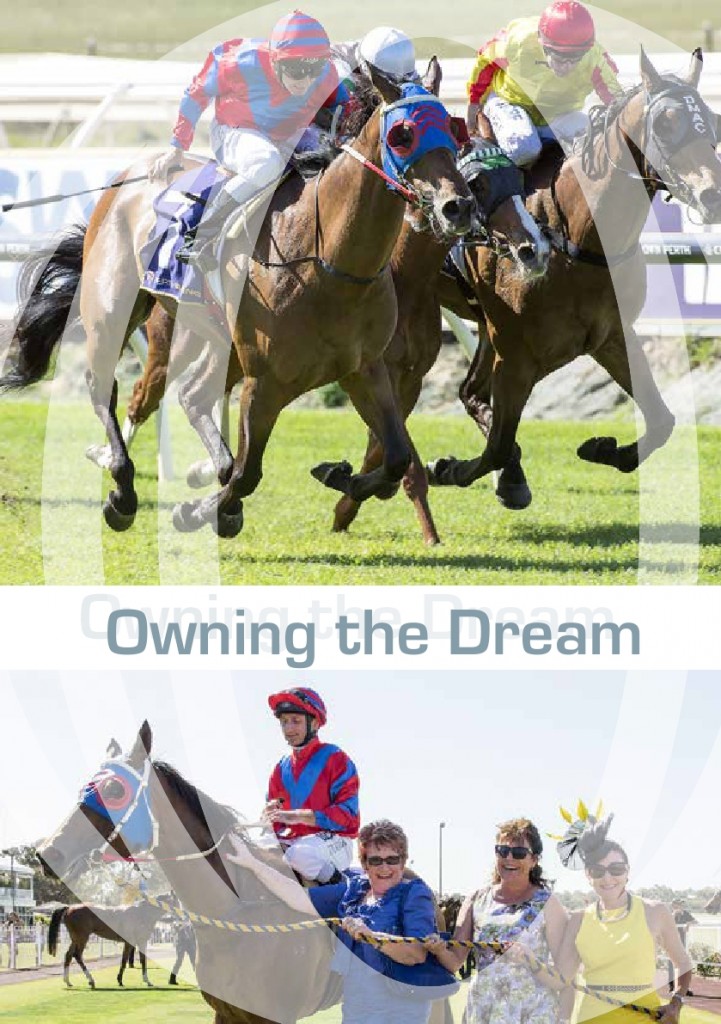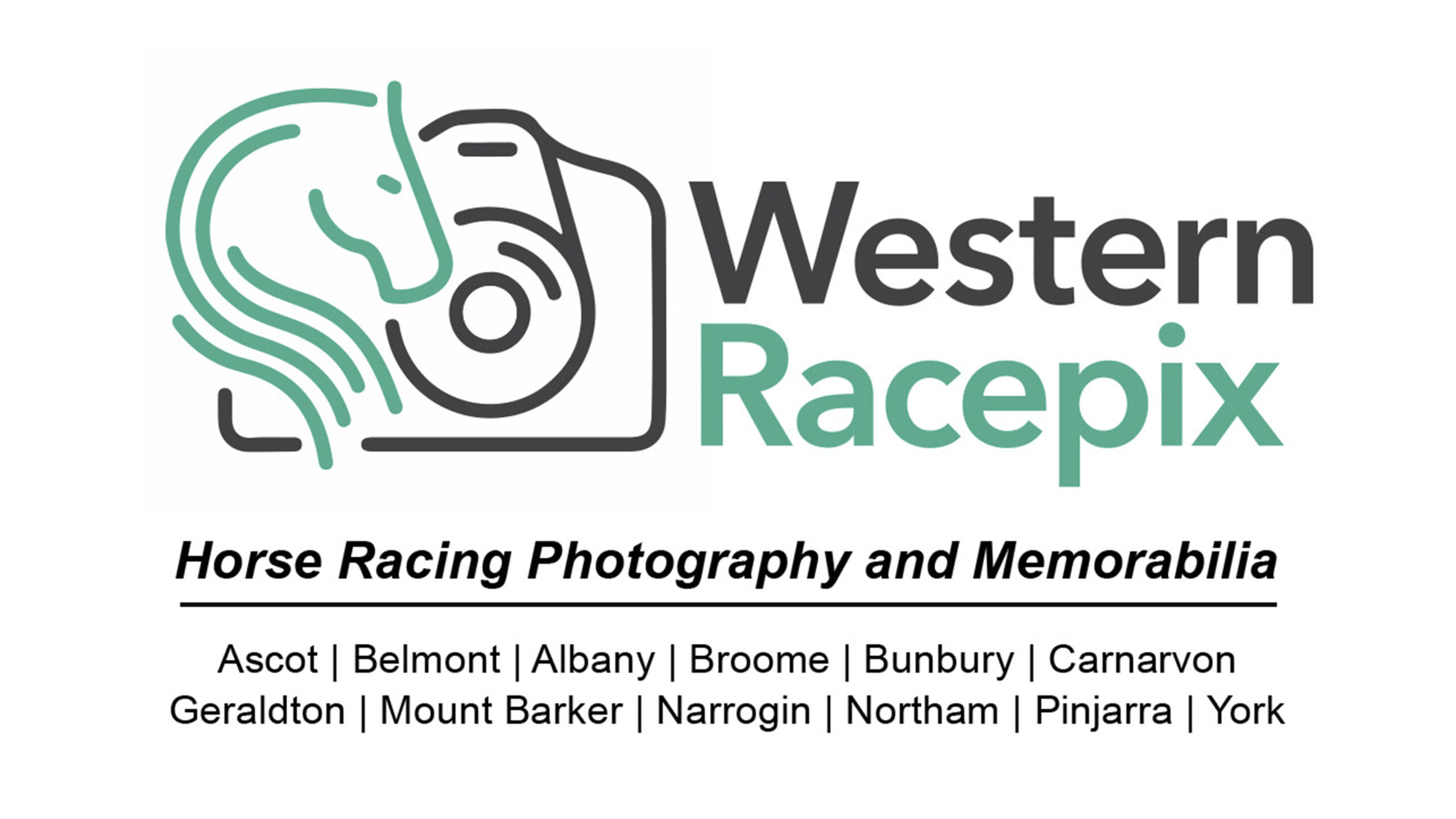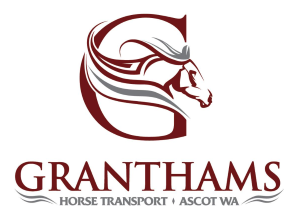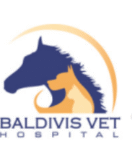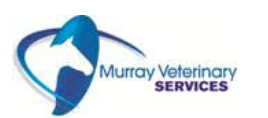Ever Dreamed of Owning a Racehorse?
One thing we know is that anyone that has ever owned a thoroughbred will tell you watching them race is one of the biggest thrills you will ever experience. Whilst there aren’t any guarantees in racing, being an active part of the thoroughbred racing scene is surprisingly easy and with different forms of ownership it caters to every budget.
You can own a thoroughbred as an individual, in a partnership or with a group of people in a syndicate (friends/family/workmates/sporting team mates). Or you can lease a horse which has no initial outlay involved.
Making an investment that suits your budget and meets your expectations is important so here is some helpful advice to get you started on the right path.
Types of Ownerships and their descriptions:
- Sole Ownership: Being a sole owner means you reap all the rewards, but also carry all the costs. You have total control over the key decisions and will generally deal one on one with your trainer.
- Joint Ownership/Partnerships : Partnerships allow you to share in the excitement of horse ownership with work colleagues or friends and split the costs. Up to 20 people can jointly race a horse. Most trainers will have availability in horses, especially after a yearling sale and they would welcome you to join in with many of their current or regular owners in ownership.
- Syndicates: If ownership sounds exciting but you’d rather reduce your cost outlay, then syndication may be the answer for you. Syndication will give you a lesser percentage share in a horse, (or horses) and the selection of the horse, trainer, jockey etc. can be left up to the professionals (either the Syndicator or the manager of the syndicate). They will supply a product disclosure statement (PDS) and the syndicator will be licensed with ASIC (enabling them to sell shares and holdingthe relevant licenses and be registered in the state they operate in) – in a nutshell, not just anyone can syndicate shares in a horse.
- Leasing: Leasing is effectively ‘renting’ a horse from an owner / breeder for a specified period of time and obviously does not involve an upfront purchase fee. The term of the lease will see you pay all costs associated with racing the horse along with an agreed ‘leasing’ fee which may include a percentage of prize money earned. Breeders and trainers lease horses they wish to retain ownership of, often for breeding purposes while keeping a small interest in their racing careers.
Being an owner in any form, earns you the right to appear in the winner’s circle after your horse wins so you’re in winning photos with the Jockey, Trainer and Horse. The chance to meet up and celebrate with your jockey, trainer and horse after a win is a magical feeling, as anyone that has experienced will vouch for.
The Western Australian Racehorse Owners Association (WAROA) is the official voice of racehorse owners in Western Australia. WAROA membership provides you with many benefits and for more information, visit their website www.waroa.com.au or contact Darren McAullay – 0425 305 685 or waracehorseownersassoc@gmail.com
Ok – You’re keen, so what am I up for?
One of the first things you need to consider is; at what level can I afford to be involved? Remember there is a level for every budget and the whole journey needs to be factored in. Most buyers, agents, or trainers tend to buy from the annual yearling sales that are conducted around Australia, or you can buy a tried horse (one that has already raced).
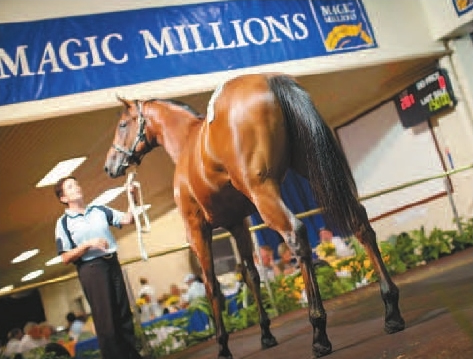 A yearling as the name suggests is a one year old and is untried and unbroken (not yet educated to be ridden). The yearling sales is where you will most likely find your greatest chance to source that next racetrack star as all the good judges of horseflesh go about looking and comparing and sourcing the yearlings they want to invest in. This can be an exciting time for you to get involved with them and start the experience of owning a thoroughbred. Some costs that you should be aware of when purchasing a yearling (unless you are doing it yourself, all of these things will be arranged for by your trainer, agent or syndicator etc.):
A yearling as the name suggests is a one year old and is untried and unbroken (not yet educated to be ridden). The yearling sales is where you will most likely find your greatest chance to source that next racetrack star as all the good judges of horseflesh go about looking and comparing and sourcing the yearlings they want to invest in. This can be an exciting time for you to get involved with them and start the experience of owning a thoroughbred. Some costs that you should be aware of when purchasing a yearling (unless you are doing it yourself, all of these things will be arranged for by your trainer, agent or syndicator etc.):
- Purchase price at the sales – in Perth our annual yearling sales have averaged around $40,000 per yearling at the premier sessions in the past few years. Of course there are many horses that sell for $2,000 to $10,000 and relative to your level of ownership you could be up for a small $1000 share in a group or the total price as a sole owner.
- Insurance – many buyers insure their horse from the “fall of the hammer” when they buy at the sales. This is around 4% to 5% of the purchase price for a 12 month period. Often people choose to insure for just the first 12 months while the horse goes through their racing education.
- From the sale transport needs to be arranged to send your horse from the sales ground to an agistment / spelling farm. Agistment ranges from $15 to $30 per day, depending on the services they offer. Transport can cost around $150 from Perth to most agistment farms in a 100km radius or thereabouts.
- The next step with your horse will be to send it off to be ‘broken in’. This is the education process when the horse will spend around 6 weeks being taught to be a racehorse. They will be mouthed and taught to steer, they will have a saddle on them and taught what to do with a rider on their back, go around a racetrack, learn to jump out of the starting gates and all the things necessary to become a racehorse. This is a vital part of the horse’s early education process and what it learns here will help it throughout its racing career. Expected cost approx. $3,500.
- If you have purchased a colt (young stallion) you may choose to geld him as they can be easier to train. This is a minor operation done by a vet that takes a short time and costs approx. $300 – $400.
- A once off registration fee ($110) to name your horse will need to be paid and it is certainly great fun sitting around with your friends, trying to decide some names for your new horse!
- The Westspeed bonus is a great incentive for locals if you buy a WA bred horse. For a one-off payup of $2,860, this allows your horse to race for a host of bonuses during its two and three year old season. An additional bonus of $32,500 on top of prizemoney is paid when winning a Saturday metropolitan race, with smaller bonuses paid for country and provincial races as well.
- Training and managing your horses career is vital and Trainers fees range anywhere from $50 per day through to around $80 per day here in WA depending on the trainer and his / her facilities and services they may offer.
- A few other costs that you need to be aware of are shoeing, your horse will need to be shod every few weeks when in training (approx. $100) and worming ($25) – generally monthly.
- A horse will generally spend 2/3 of the year in training and 1/3 of the year spelling (resting).
Again, remember all these costs can be shared with your group or taken on by a sole owner, depending on your budget. With first prizemoney of over $40,000 plus a Westspeed Platinum Bonus of $32,500, WA is certainly a great place to be involved in racing.
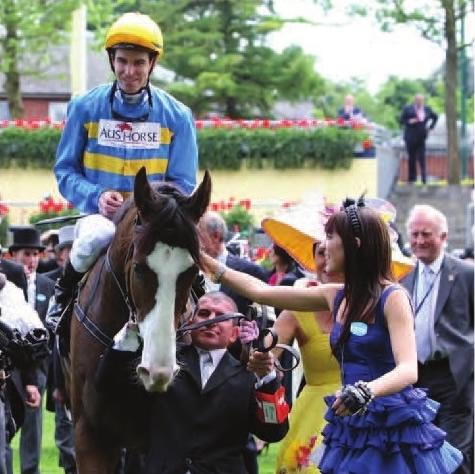 Putting the odds in your favour
Putting the odds in your favour
Finding the trainer that is right for you will take a bit of working out. A trainer will give your horse the work that is required to get it into prime condition and spends their week giving the horse guidance and expert attention. You can have the best horse in the state but without a quality trainer you will never see it reach its true potential. If you have been a keen punter prior to getting involved in ownership maybe there is a stable that you have had success following – perhaps they will be the first stable you make contact with when looking to enquire about purchasing your horse. For a current list of racehorse trainers in WA, contact RWWA on (08) 9445 5333 or info@rwwa.com.au or the Trainers Association website http://www.waracingtrainers.com/trainers/trainers-directory/ Some of the issues you might like to address with potential trainers are:
- What is your proposed training fee structure?
- Do you foresee any extra charges other than training fees?
- What are the plans for communicating with the owners in relation to the horse? (phone calls, emails, website, faxes etc.)
- When can I visit my horse?
- What tracks do you prefer to race your horses at?
- Where will my horse be based when it is in work and spelling?
- How many horses are you currently training?
- Can I buy into a horse that you have with some of your current owners?
- What style of horses have you had the most success with? (e.g. young, old, sprinters, stayers etc.)
- Where have your most successful horses come from in the past? (yearling sales/proven race horses/locally/interstate etc.)
- What sort of horse would you suggest for me as a first timer? (proven race horse/yearling/2-year old etc.)
Another alternative is to find a bloodstock agent to buy your horse for you. A bloodstock agent is a person who is given the authority to buy and or sell horses on behalf of owners and will charge a fee for doing so. They also have the knowledge and experience to offer opinions regarding pedigree, conformation, and characteristics of a horse. This allows you to buy the horse first and then put some thought into who you might like to have as a trainer once you have your chosen horse. Bloodstock Agents operate under a code of conduct as set out by the thoroughbred industry and you can find your local agents here.
Of course, it may be that a syndicate is your preference and then a syndicator will do all of the work for you. Syndicators will go to the sales, source the horse and allocate a trainer for that horse and then set about marketing that horse for sale (in shares determined by the syndicator). They will supply a product disclosure statement (PDS) and the syndicator will be licenced with ASIC (enabling them to sell shares and holding the relevant licenses and also be registered in the state they operate in) – in a nutshell, not just anyone can syndicate shares in a horse. Generally the syndicator will add in all the early costs such as insurance for a certain period, breaking in, education, race series and incentive scheme pay ups, as well as training for the first few months. On top of this they may choose to add on a margin and they will outline management fees, costs, charges, etc. in the PDS, so any prospective buyer is well aware of all charges prior to getting involved.
So, once you’ve made a few decisions about what type of ownership suits you and done as much homework as you think necessary, all you need to do is get involved, sit back and as the saying goes ‘Enjoy the ride’.


